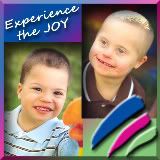I finished teaching my multicultural counseling class. As I mentioned before, I just wanted to comment on disabilities as being an area of diversity, like race, age, sexual orientation, religion, and gender. Expanding on the minority model of disabilities that I mentioned before, here are some thoughts I have on that topic…
There is diversity within the area of disability as well, including in the area of Down syndrome. Quinn has some of the same experiences and different experiences as other children with Down syndrome her age. This also applies to typical children too – she has had some of the same and different experiences to typical children her age. The problem comes in when certain assumptions are made.
Some problematic reactions to those with disabilities range from ignorance to lack of understanding to being overprotective to being overly sympathetic. There are reactions of support and love too. The main issue with the problematic reactions is often not the disability or the person with the disability, but the person who is reacting – their own attitude, bias, and personal fears/baggage related to disability. We must look at ourselves and grow. Especially when we are having a strong reaction! I know this was the case for me. Just read my scrapbook post.
Because society likes to categorize, some individuals may assume that a disability in one area impacts other areas. This can be very frustrating because a person could have a talent in another area. If a person accomplishes something (like Karen Gaffney or Christopher Burke) others may think these accomplishments in certain areas (swimming or acting) are superhuman. They are just individuals with talents, not superhuman. Or there may be the other extreme – individuals with disabilities may be seen as being afflicted or the victim of the disability. Quinn does not suffer and she is not a victim.
There is a need to recognize they are a person first – pay attention to person first language. Quinn is first and foremost Quinn, a person. She is not a DS kid. She is Quinn, an individual, so much more than just DS.
Look at each individual, but also learn about the disability. If you don’t know something, don’t assume – just ask and admit you don’t know. Do not solely focus on the disability. Sometimes the problems isn’t mostly the disability, it is more of the environmental contributions to problems.
There may be two types of errors made: errors of omission and errors of commission. Errors of omission involve failing to ask about certain areas because of assumptions about the disability (e.g., relationships and that they may not have romantic interest). Errors of commission involve bringing up certain issues because of the disability. Personal problems are assumed to be result of disability. Not all experiences are because of the disability – there are individual and universal factors too.
-Karyn
What day is it, even?
5 years ago


















No comments:
Post a Comment